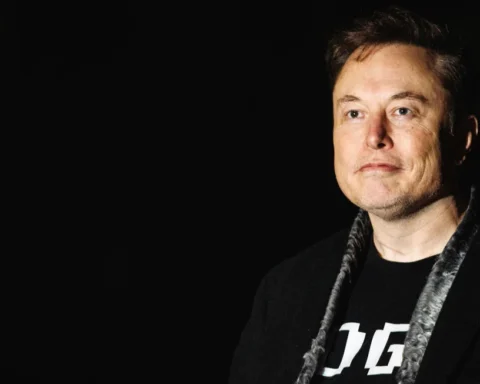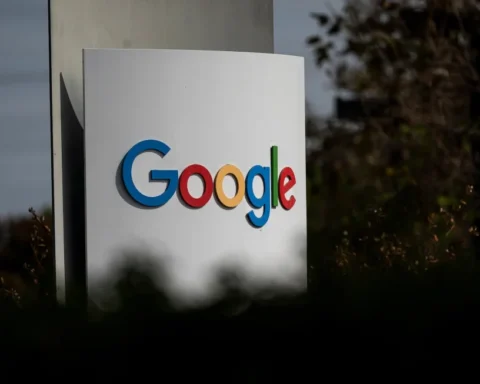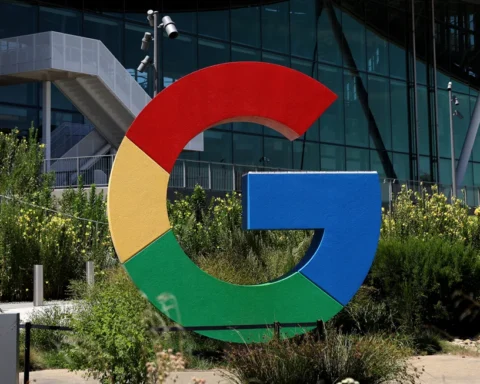
Google Cracks Quantum Computing Barrier with Revolutionary Willow Chip
Google’s Willow Chip Achieves Quantum Leap, Solving Complex Problems in Minutes and Paving the Way for Future Innovations
·

New Quantum Chip Solves Complex Problem in Minutes, Opening Doors to Breakthroughs in Medicine, AI, and Beyond
In a groundbreaking development, Google has announced that it has overcome a critical challenge in quantum computing, unveiling a new chip that can solve a complex computing problem in just five minutes — a task that would take a classical computer more than the entire history of the universe to complete. This achievement signals a major leap forward for the tech giant in its pursuit of quantum computing, a field that promises to revolutionize industries ranging from artificial intelligence to medical research.
The chip, named Willow, is the latest iteration in Google’s quantum computing journey and features 105 “qubits,” the fundamental units of quantum computation. Qubits are incredibly fast but notoriously error-prone, sensitive to even the slightest interference, such as subatomic particles from space. In quantum computing, the challenge has long been to minimize these errors as the number of qubits increases.
For decades, researchers have worked on quantum error correction to ensure that as more qubits are added to a chip, the overall reliability doesn’t degrade. Google’s breakthrough comes with the Willow chip’s ability to not only string qubits together in a way that minimizes error rates but also correct errors in real-time. This advancement, as outlined in a new paper published in Nature on Monday, marks a critical step toward making quantum computing practical for real-world applications.
“We are past the break-even point,” said Hartmut Neven, the head of Google’s Quantum AI unit, in an interview. This milestone suggests that Google’s quantum computing efforts are no longer limited to theoretical research but are increasingly approaching the realm of tangible solutions.
While the problem solved by the Willow chip is not directly applicable to commercial use, the implications are far-reaching. Quantum computing holds the potential to tackle challenges that today’s classical computers cannot, particularly in areas like medicine, battery chemistry, and artificial intelligence. Google is optimistic that its quantum machines will eventually offer solutions to some of the most complex problems facing humanity.
In a post on its blog, Google addressed past criticisms of its quantum achievements, particularly those from IBM, which in 2019 questioned the validity of Google’s claims regarding the time it would take for a classical computer to solve a similar problem. Google’s latest estimates, even under the most ideal conditions, show that a classical computer would take a billion years to achieve the same results that Willow can complete in minutes.
Despite competitors like IBM and others making quantum chips with larger numbers of qubits, Google’s approach has focused on making the most reliable qubits possible. As Anthony Megrant, chief architect of Google Quantum AI, explained, the company has invested heavily in a new fabrication facility dedicated to producing its Willow chips, enabling faster production and more efficient experimentation.
“Having our own facility allows us to rapidly implement new ideas and accelerate the development of future chips,” Megrant said. The chips are cooled in cryostats, massive refrigerators that keep them at the ultra-low temperatures required for quantum experiments, further ensuring that Google can quickly iterate and refine its quantum computing technologies.
With this latest breakthrough, Google solidifies its position as a leader in the quantum race, poised to transform not just computing, but the broader landscape of scientific discovery and technological innovation.
Post Views: 430
- Trump’s New Tariff Order on Canadian Imports Sends Shockwaves Through the Stock Market
- Timothée Chalamet and Kylie Jenner Spotted Sharing a Kiss at the BNP Paribas Open, Fueling Romance Rumors
- Trump Shows Support for Musk Amid Struggles: “I’ll Buy a Tesla to Back Elon”
- Millie Bobby Brown Speaks Out Against ‘Horrible’ Media Coverage: “I Will Not Be Shamed”
BUSINESS
CEO INSIDER
This error message is only visible to WordPress admins
Error: No feed with the ID 1 found.
Please go to the Instagram Feed settings page to create a feed.
















